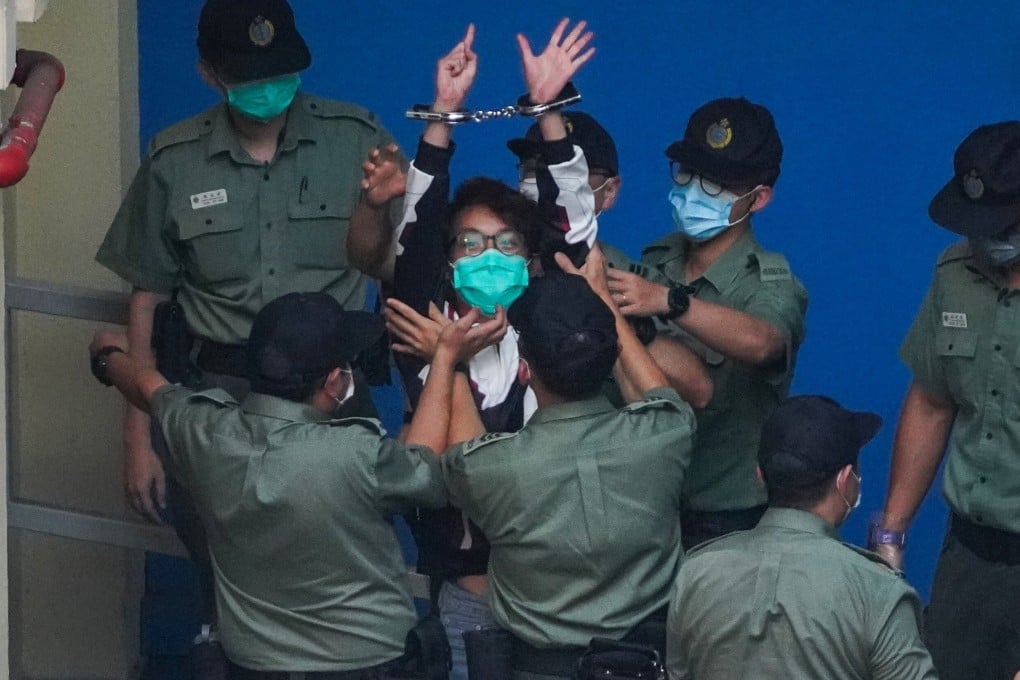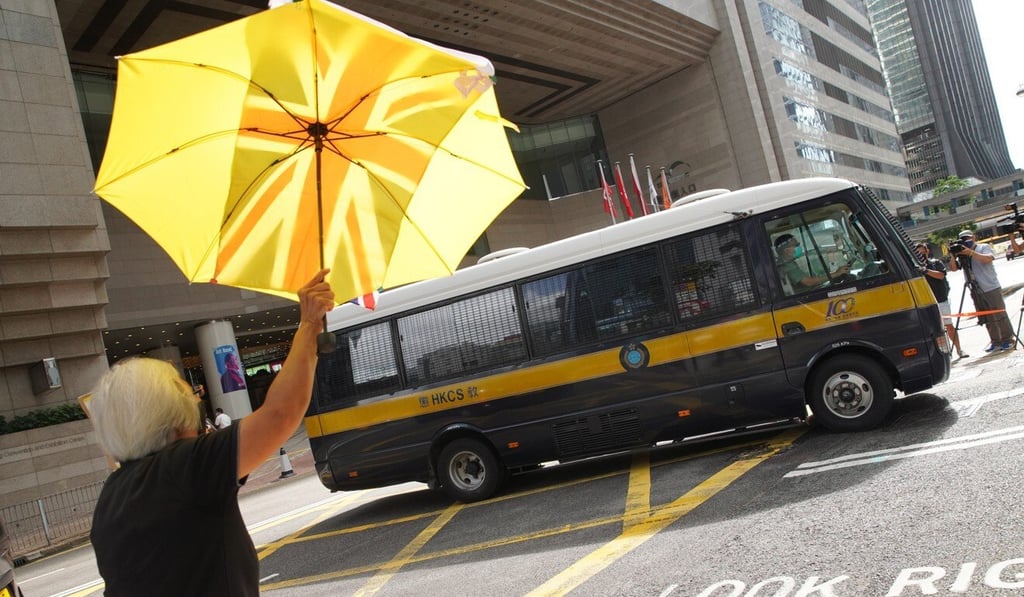Advertisement
Hong Kong protests: head of activist group tells court illegal rally came after authorities denied right to lawful assembly
- Civil Human Rights Front convenor Figo Chan is on trial along with media tycoon Jimmy Lai and eight others for organising unauthorised National Day protest
- After pleading guilty and ahead of sentencing, they seek to put distance between them and the violence that erupted during the procession
Reading Time:3 minutes
Why you can trust SCMP

The head of a civil-rights group behind some of Hong Kong’s biggest protests told the District Court on Monday that he and his co-defendants, including media tycoon Jimmy Lai Chee-ying, would not be on trial for organising an unauthorised rally two years ago if they had been allowed to lawfully exercise their right to assembly.
Civil Human Rights Front convenor Figo Chan Ho-wun, 25, was among 10 prominent opposition figures to plead guilty before Judge Amanda Woodcock last week to one count of organising an unauthorised assembly during the social unrest and remanded in custody ahead of sentencing this Friday.
The court heard that police had rejected the front’s application for permission to stage a rally in Causeway Bay and Central on National Day on October 1, 2019.
Advertisement
But according to prosecutor Priscilia Lam Tsz-ying, several defendants encouraged the public to take part and all of them marched with thousands of protesters towards Central, with riotous incidents erupting along the way.

Advertisement
In mitigation, Chan said video footage submitted by the prosecution only showed the violent incidents during the “national mourning procession” and the defendants had always asked people to make their demands heard peacefully.
Advertisement
Select Voice
Choose your listening speed
Get through articles 2x faster
1.25x
250 WPM
Slow
Average
Fast
1.25x